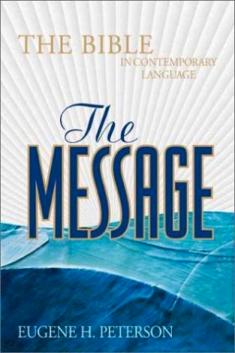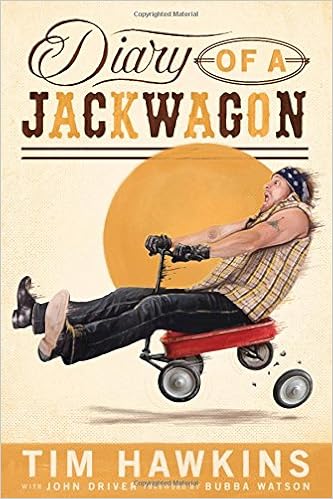So if you are offering your gift at the altar and there remember that your brother has something against you, leave your gift there before the altar and go. First, be reconciled to your brother, then come and offer your gift.--Matthew 5:23-24
I have meditating on these words from Jesus a lot over the past week or so. I think a part of what Jesus was telling his disciples was that, more important than the activities of the church, or temple worship, or sacrifice, or tithing, were people. Jesus was telling his hearers that it is relationships that really matter. The whole Bible is about relationship--God with us, and us with one another.
Relationships are messy. Broken people loving broken people. Forgiveness and reconciliation need to be a part of the fabric of what marks us as Christians. It will likely be required of us often (In Matthew 18, Jesus mentioned something about 7x70 times). Yet, more than any other act of worship that we may be involved in--singing, tithing, service--Christ calls us to relationship.
31 July 2015
28 July 2015
Book Review: Diary of a Jackwagon
I am a huge fan of Tim Hawkins. I saw him for the first time at a counseling convention a few years ago and I became an immediate fan. Since then, I think I have purchased every DVD he has made. My son shares my affection for Hawkins's comedy; at this point, he can do many of the lines along with Hawkins because he has watched them so often. I not only think he is the funniest Christian comedian working today, I think he may be the funniest all around comedian. Certainly top three.
Needless to say, when I saw that he would be releasing a book, Diary of a Jackwagon (2015, Thomas Nelson), I was excited. When the package arrived, I set to reading it right away, eager for the inevitable stomach cramps and shortness of breath brought on by uncontrollable fits of laughter.
On the positive side, this book represents Tim Hawkins's brand of humor, which is what I had hoped for. Reading through, I could actually hear him making some of the jokes. He has a humorous, engaging perspective that butts up against real life. He's not afraid to poke fun of himself. His comedy is born out of his life experiences.
However, I had higher hopes for this book. Most of the chapters are repackaged versions of the author's existing stand up routines. Although that can sometimes be done to great effect, it seemed to fall flat here. I tried to think about why that was my perception. I think one reason is that I am so familiar with his comedy routines that reading them didn't really generate the laughter that I had hoped for. I think a bigger contributing factor is that Hawkins's comedy is very physical. He makes use of vocal inflection, music, and movement to enhance--to a remarkable degree--his product. By nature of the medium, that is lost in the book. There were places where the authors tried to explain the physical aspects miss the mark.
On the whole, I want to say that I think every person would be better off if they were exposed to the comedy of Tim Hawkins. In the realm of comedy, he is a true genius. However, I believe in general you would be better served by getting a copy of his videos than reading the book because it doesn't do him justice.
I was provided a free copy of this book by Thomas Nelson and the BookLook Bloggers program in exchange for a written review. I was not required to write a positive review and the opinions above are my own.
Book Review: Love Does
A couple of weeks ago, my good friend Mark placed Bob Goff's Love Does (2012, Thomas Nelson) in my hands, telling me he thought I would really enjoy it. He was right. I wasn't disappointed.
I read a lot of books and I enjoy many of them. A select few I would even describe as amazing. Every once in a while, I read a book and think, "if I ever write a book, that is the kind of book I want to write." Love Does is one those books, a book where real life meets humor and wisdom and a deep love for God and others.
Essentially, Love Does contains a series of short narratives from Goff's life that he routinely connects to the love of Christ and the Christian faith. Through the 31 chapters, he writes about things like treating a flesh wound with bubble gum and Scope mouthwash, courting his wife with peanut butter sandwiches, and hitchhiking with Satan, I would share more than teasers with you, but I really want you to read this book.
If I had to boil down the book to one word, it would be "whimsy", a word repeatedly used by Goff throughout the book. You see, Goff wants his readers to see that Christians can be fun-loving, joyous, and playful. He encourages us to live in the moment with reckless love toward others and to worship from the top of a mountain or perhaps while riding a skateboard in a business suit.
I don't know that Goff and I would agree on everything. In reality, there is no one I would agree with fully. What I do suspect is that I would enjoy spending time with him. I think you will too.
I read a lot of books and I enjoy many of them. A select few I would even describe as amazing. Every once in a while, I read a book and think, "if I ever write a book, that is the kind of book I want to write." Love Does is one those books, a book where real life meets humor and wisdom and a deep love for God and others.
Essentially, Love Does contains a series of short narratives from Goff's life that he routinely connects to the love of Christ and the Christian faith. Through the 31 chapters, he writes about things like treating a flesh wound with bubble gum and Scope mouthwash, courting his wife with peanut butter sandwiches, and hitchhiking with Satan, I would share more than teasers with you, but I really want you to read this book.
If I had to boil down the book to one word, it would be "whimsy", a word repeatedly used by Goff throughout the book. You see, Goff wants his readers to see that Christians can be fun-loving, joyous, and playful. He encourages us to live in the moment with reckless love toward others and to worship from the top of a mountain or perhaps while riding a skateboard in a business suit.
I don't know that Goff and I would agree on everything. In reality, there is no one I would agree with fully. What I do suspect is that I would enjoy spending time with him. I think you will too.
14 July 2015
Book Review: The Message
Normally, for off the shelf, I talk about one of the books
that I read in the previous week. This week’s review may seem a little bit different—because
I am reviewing the Bible. Specifically, I want to talk a little bit about
Eugene Peterson’s paraphrase of the Bible called the Message. Over the last 4
weeks, I set aside my other typical reading and read straight through the pages
of The Message.
 Typically, I am ESV
guy. I do the majority of my reading from the English Standard Version, which tries
to retain the richness of the biblical language while translating word for
word. Other faithful translations employ what might be described as thought for
thought translations, like the New International Version or the New Living
Translation. In fact, if you are ever bored on a Saturday afternoon, spend some
time reading about translation philosophies and the histories of the dozens of
translations available.
Typically, I am ESV
guy. I do the majority of my reading from the English Standard Version, which tries
to retain the richness of the biblical language while translating word for
word. Other faithful translations employ what might be described as thought for
thought translations, like the New International Version or the New Living
Translation. In fact, if you are ever bored on a Saturday afternoon, spend some
time reading about translation philosophies and the histories of the dozens of
translations available.
The Message is at the other end of the spectrum from the ESV
in that it is a paraphrase of the Bible. In fact, Peterson never really started
out with the goal of translating the whole Bible in to contemporary language.
It began because when he was a pastor he was leading his church through Bible
studies and they seemed bored, so beginning with Paul’s letter to the
Galatians, he began to rework the language in a way that was faithful to the
text, but engaging to modern hearers. In his book “Eat this Book” he actually
spends several chapters describing how it came about.
Though I am an ESV guy, I wanted to read through The Message
because I have a great respect for Eugene Peterson. He is one of my favorite
authors, one who appreciates the beauty of language. I also wanted to see God’s
word with fresh eyes. The decision to read straight through also allowed me to
see God’s redemptive story in a glorious panorama.
I would definitely recommend The Message, perhaps not as
your primary translation, but as a way to see God’s word with fresh eyes.
Subscribe to:
Posts (Atom)



